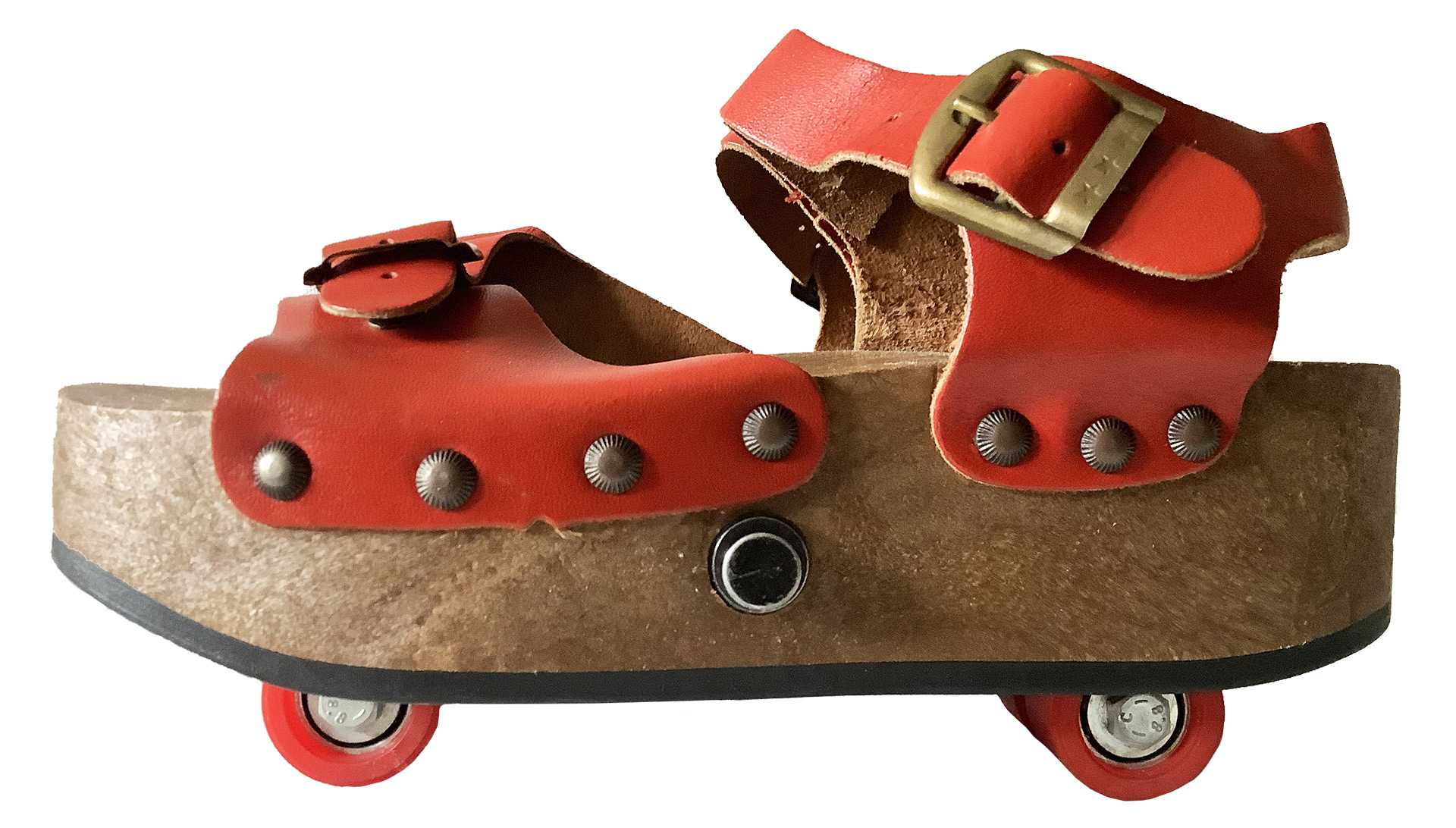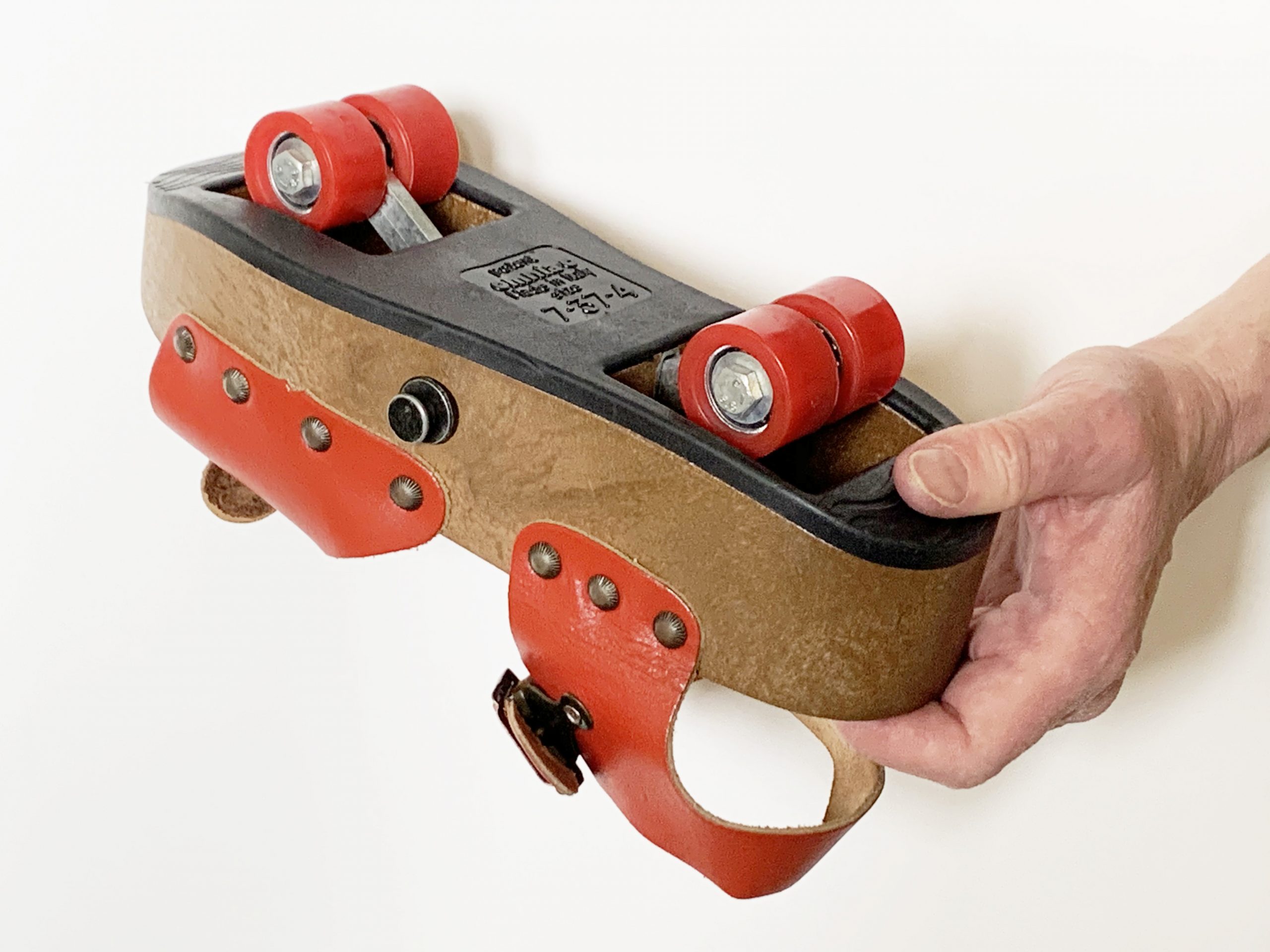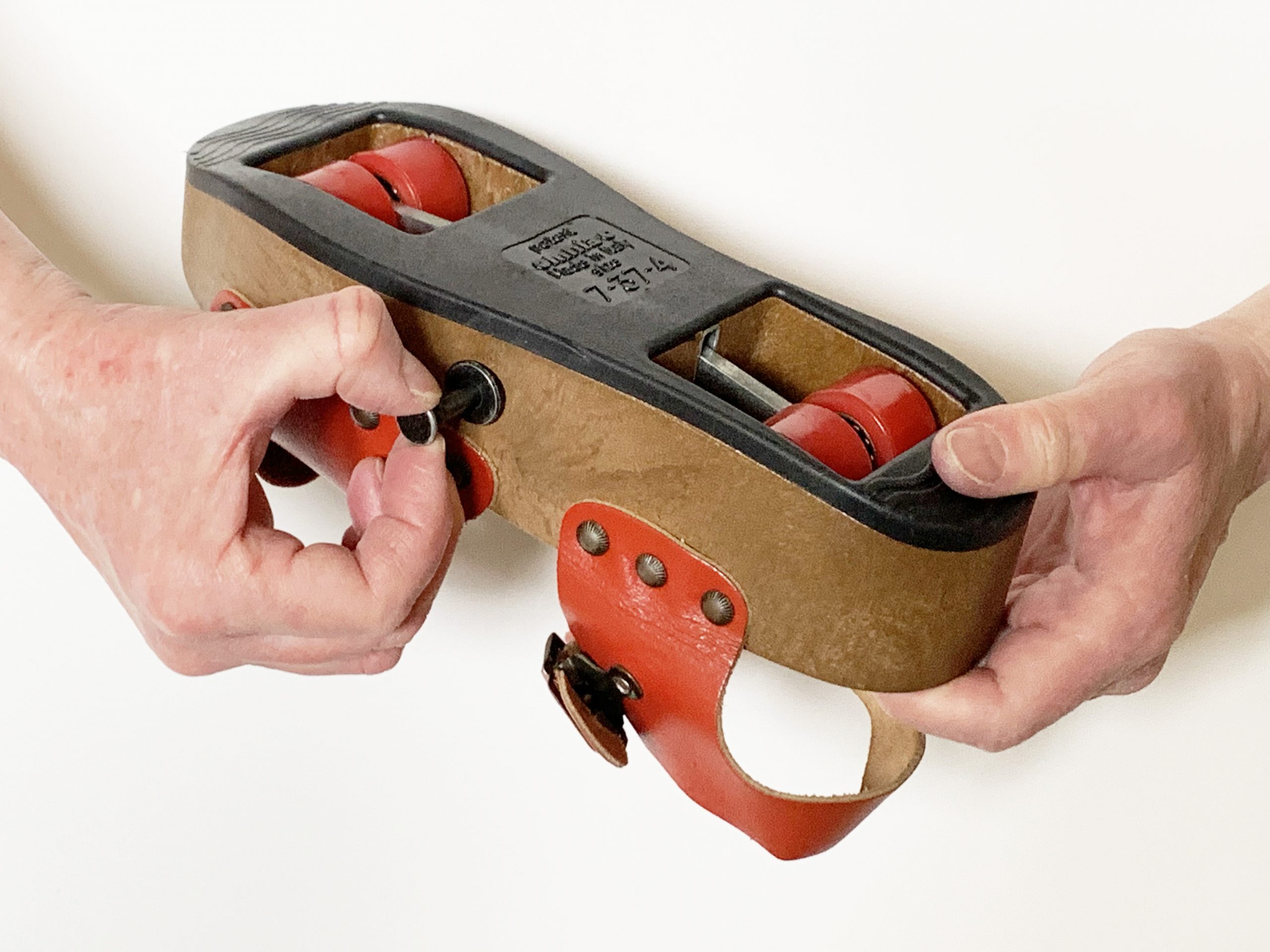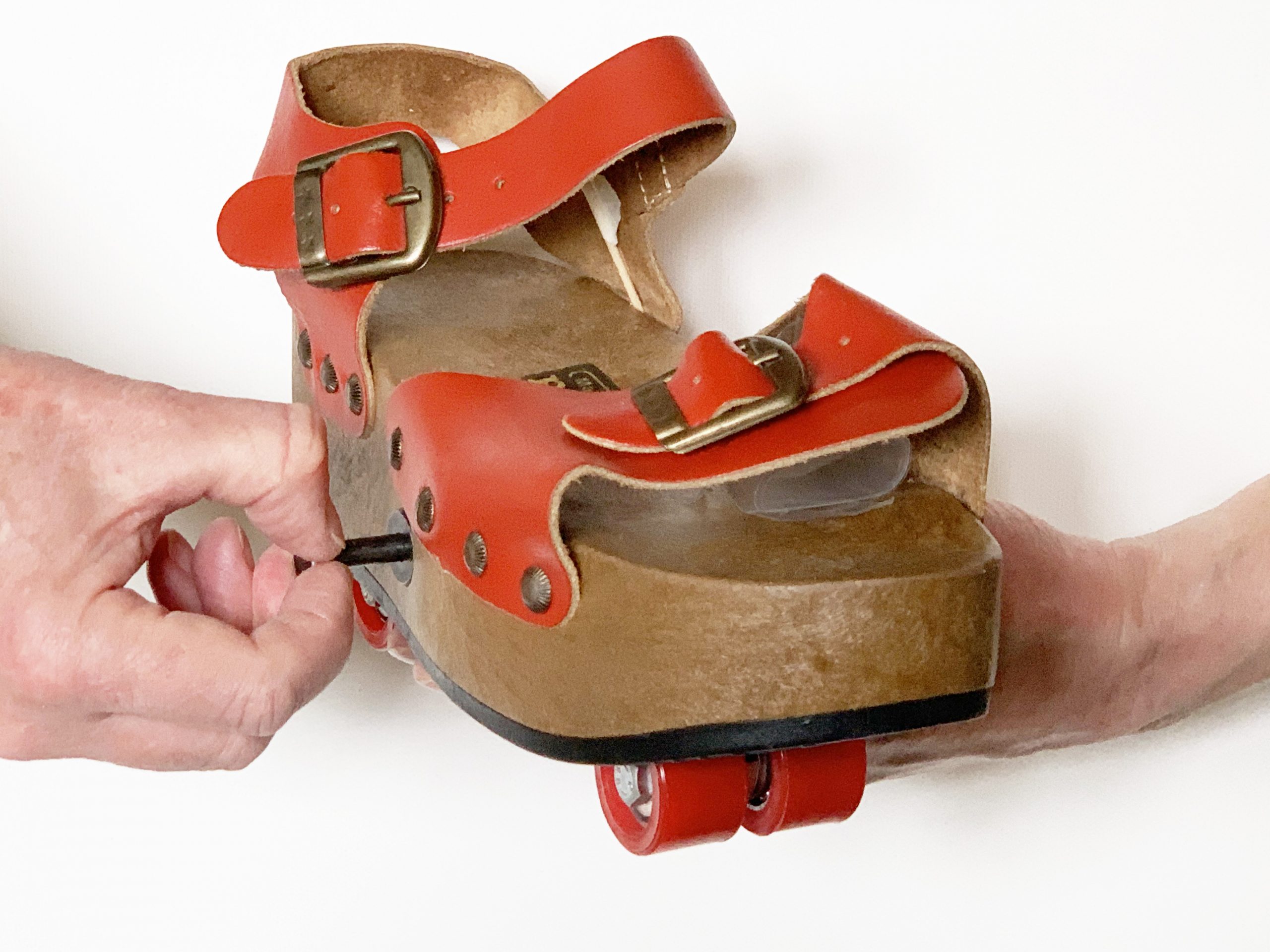Pop Wheels

Everyone needs shoes to play in. These 1978 Pop Wheels look like so much fun! They combine the 1970s fashion for platforms with the fad of roller-skating. The platform gives some extra space to hide the wheels.

When you want to really move, just pull the metal knob on the side.

Out pop the wheels…

….and off you go!
Roller skating had a shaky start. 250 years ago their inventor John Joseph Merlin wore them to a party. He made his grand entrance into the fancy house on roller skates, while also playing the violin! Turns out he was better at inventing than roller skating. He crashed into an expensive mirror, breaking it, the violin and seriously hurting himself!
Follow this link to see some actors telling this story:
Activity to Try
Investigating Ramps
We ran our Pop Wheels down a slight incline, or ramp. Ramps are actually a kind of simple machine. They help us to move things more easily up or down. For example, a wheelchair ramp makes it easier for people to get in and out of buildings that have stairs. A ramp on the back of a delivery truck helps the driver to push a load into the truck. A slide at the playground is a ramp. Pop Wheels will move on a ramp even though no one is wearing them!
Watch this video to learn more about ramps, also called ‘inclined planes’:
It’s easy to make your own ramp. Find something hard and flat – a piece of cardboard, a large book, a tray, a cutting board etc. Prop it up to make a small incline. You can prop it using building blocks, books – anything that will raise it up off the ground or table. Then collect some small things to send down the ramp, like a toy car, marble, spoon, pencil, sock. Anything, really!
Look at your objects and try to guess which ones will go down the ramp the fastest. Arrange them in order, from fastest to slowest. Test out your predictions. Why do some things move more quickly than others? Does how heavy our light they are make a difference? Raise the ramp higher with more building blocks, books etc. What happens to the objects now?
Congratulations! You’ve made a simple machine and investigated what it can do.
